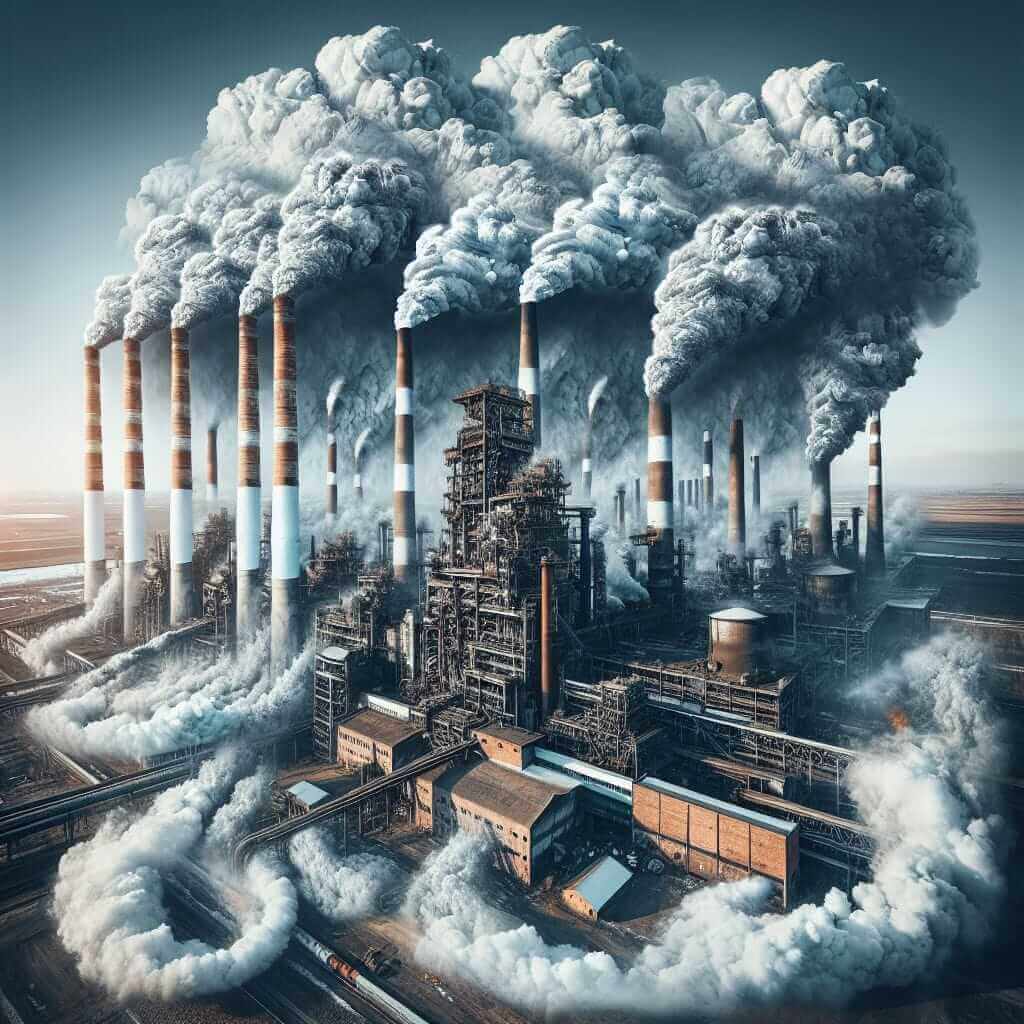The Reading section of the IELTS exam is designed to evaluate your ability to understand and analyze written texts in English. Topics such as the effects of industrialization on the environment have appeared frequently in the exam, due to their relevance and impact on modern society. Understanding and practicing these topics not only enhance your IELTS performance but also broaden your knowledge of important global issues.
Given the historical appearance of this topic in multiple IELTS exams, there is a substantial probability that similar subjects will appear in future tests. Let’s dive into a detailed examination of this topic and provide a full IELTS Reading practice test to enhance your preparation.
Practice IELTS Reading Test: Effects of Industrialization on the Environment
Reading Passage
Effects of Industrialization on the Environment
Industrialization has significantly transformed human society, bringing about both positive economic advancements and negative environmental consequences. Since the Industrial Revolution in the late 18th century, human activities have had profound impacts on the natural world.
Air Pollution
One of the most visible effects of industrialization is air pollution. Factories often release pollutants, including sulfur dioxide, carbon monoxide, and nitrogen oxides, into the atmosphere. These pollutants can have detrimental effects on human health, causing respiratory problems and other illnesses.
Water Pollution
Industrialization has also contributed to water pollution. Factories and industrial plants often discharge waste products into rivers and oceans. These pollutants can harm aquatic life and disrupt entire ecosystems. Heavy metals, chemicals, and waste products can make water sources unsafe for human consumption.
Deforestation
Rapid industrialization has led to extensive deforestation. Trees are cut down to create space for factories and urban developments. Deforestation contributes to the loss of habitat for many species, leading to declines in biodiversity. It also exacerbates climate change, as trees play a critical role in absorbing carbon dioxide from the atmosphere.
Climate Change
Industrial activities have been a major contributor to climate change. The burning of fossil fuels for energy releases large amounts of greenhouse gases, such as carbon dioxide, methane, and nitrous oxide. These gases trap heat in the earth’s atmosphere, leading to a rise in global temperatures, which impacts weather patterns, sea levels, and biodiversity.
Waste Management Issues
The industrial sector generates a vast amount of waste. Improper management of industrial waste leads to soil contamination and health hazards for surrounding populations. Hazardous waste can leach into the ground, affecting both soil and groundwater quality.
Industrialization has undoubtedly improved living standards and economic prosperity but at a significant environmental cost. Mitigating these adverse effects requires global cooperation and the adoption of sustainable practices.
Questions
Section 1: Multiple Choice
-
According to the passage, what is one primary consequence of industrialisation on air quality?
- a. Increase in agricultural productivity
- b. Air purification
- c. Air pollution
- d. Decreased biodiversity
-
Which pollutants are mentioned in the context of water pollution?
- a. Sulfur dioxide and carbon monoxide
- b. Heavy metals and chemicals
- c. Nitrogen oxides
- d. Pure water
-
What is one factor contributing to deforestation mentioned in the passage?
- a. Natural disasters
- b. Urban development and factory space
- c. Agricultural practices
- d. Recreational use of forests
Section 2: True/False/Not Given
-
Industrial plants typically do not contribute to water pollution.
- True
- False
- Not Given
-
Climate change is solely caused by natural factors, excluding industrial activities.
- True
- False
- Not Given
-
Proper waste management can reduce environmental and health hazards.
- True
- False
- Not Given
Section 3: Sentence Completion
Complete the sentences using words from the passage.
- One visible effect of industrialisation is ___ pollution.
- Deforestation contributes to the loss of ___ for many species.
- Industrial activities release ___, which trap heat in the earth’s atmosphere.
Answers and Explanations
Section 1: Multiple Choice
- c. Air pollution (The passage mentions that factories release pollutants into the atmosphere, making air pollution a significant consequence of industrialization.)
- b. Heavy metals and chemicals (These pollutants are directly mentioned in the context of water pollution in the passage.)
- b. Urban development and factory space (The passage states that trees are cut down to create space for factories and urban developments.)
Section 2: True/False/Not Given
- False (The text explicitly states that factories and industrial plants contribute to water pollution.)
- False (The passage mentions that industrial activities are a major contributor to climate change.)
- True (Proper waste management is implied as necessary to mitigate soil contamination and health hazards.)
Section 3: Sentence Completion
- air (The passage explicitly mentions air pollution as a visible effect of industrialisation.)
- habitat (Deforestation leads to the loss of habitat for many species, as stated in the passage.)
- greenhouse gases (Industrial activities release greenhouse gases, which trap heat in the earth’s atmosphere.)
Common Mistakes and Tips
Common Mistakes:
- Misinterpreting details: Always pay attention to the details in the passage to answer specific questions correctly.
- Skipping difficult words: Understanding key vocabulary is crucial for comprehending the passage.
Tips:
- Practice reading academic texts to become familiar with complex sentence structures and vocabulary.
- Time management is essential. Allocate time to each section and avoid spending too long on any single question.
Vocabulary
Pollutants (noun) /pəˈluːtənts/: harmful substances released into the environment.
Deforestation (noun) /ˌdiːˌfɒrɪˈsteɪʃən/: the act of clearing forests.
Mitigating (verb) /ˈmɪtɪˌgeɪtɪŋ/: making (the effect of something) less severe.
Industrialization (noun) /ɪnˌdʌstrɪəlaɪˈzeɪʃən/: the process of developing industries in a country or region.
Grammar
Present Perfect Tense:
- Form: have/has + past participle
- Usage: To describe actions that happened at an unspecified time or have relevance to the present.
- Example from the passage: “Industrialisation has significantly transformed human society.”
Conclusion
By thoroughly understanding and practicing the format and content of IELTS reading passages, you will enhance your ability to tackle similar topics effectively during the exam. Focus on expanding your vocabulary and sharpening your comprehension skills with various academic texts.
For more information and related topics, you can read The Effects of Overpopulation on Natural Resources and The Effects of Economic Development on Environmental Degradation.
 Air Pollution Due to Industrialization
Air Pollution Due to Industrialization
By following these guidelines and integrating these strategies into your study routine, you can improve your IELTS Reading score and gain a deeper understanding of critical issues like the effects of industrialization on the environment.


